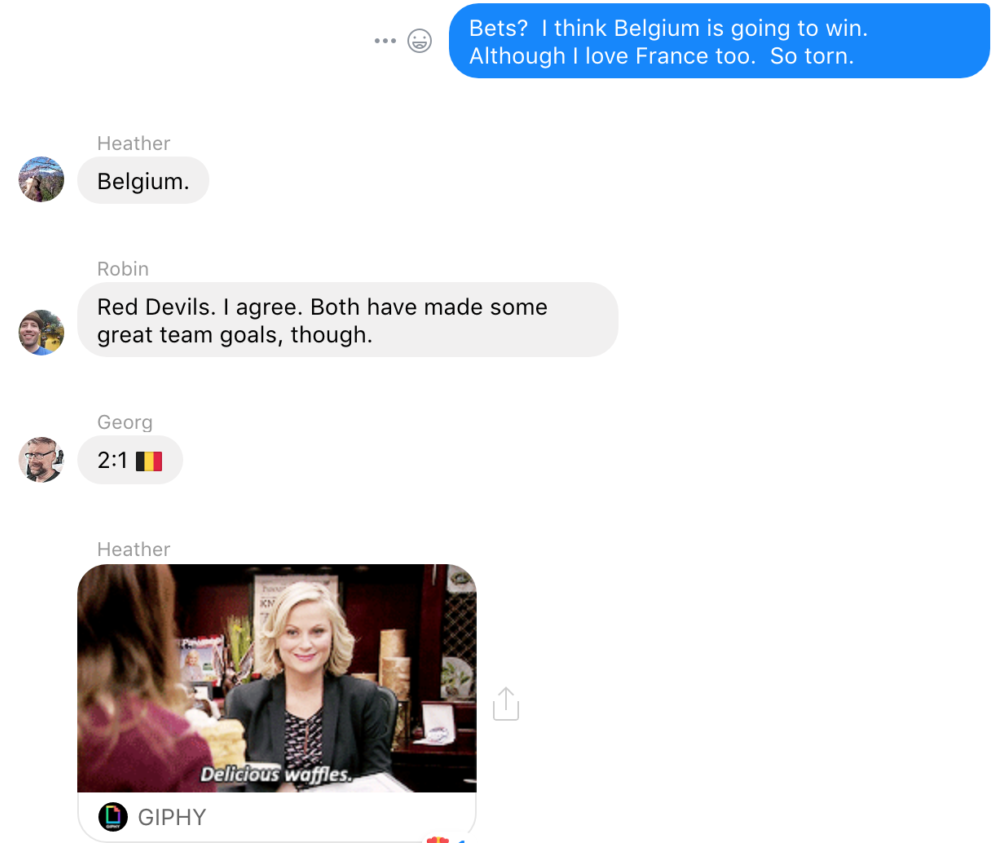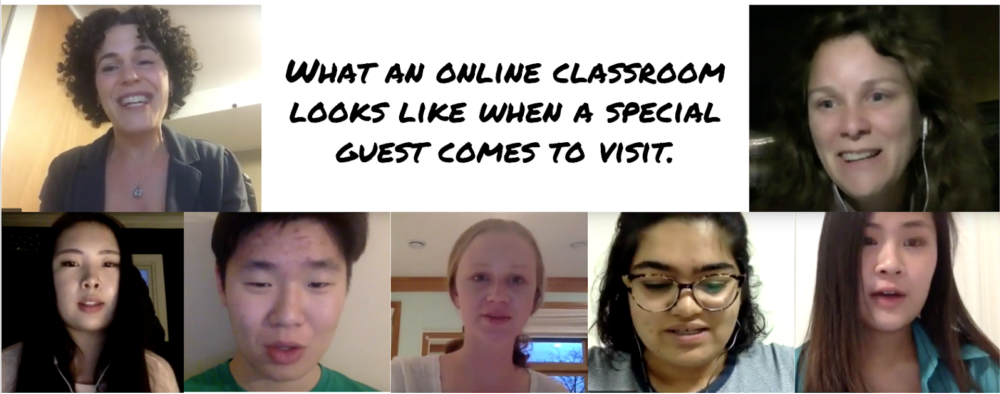What the World Cup Can Teach Us About Networked Learning
Kathleen Ralf teaches Genocide and Human Rights for GOA and is also a Humanities teacher at Frankfurt International School.
I’m a huge World Cup football fan. Teaching in Germany has made me crazy for the sport. I love international competitions, especially those that bring the world a little closer together. In the summer, though, when I return to the U.S., finding likeminded souls to watch the game with can be difficult.
For the knockout rounds, I woke up at 6:45 in the morning to join my friends worldwide to watch the matches. I would pour myself a cup of coffee, turn on the TV, open up social media, and let the banter begin. The power of the internet let me watch the games with my people in New York, Beijing, London, Vienna, Mexico City, the Maldives, a ferry boat headed to Sicily, and various other locations in Germany and Washington.
We screamed. We GIF’d. We talked trash. We shared our predictions. We praised or condemned the players, refs, or commentators. We remembered the heartbreak and euphoria of games past. We hoped that this time our favorite team won that star for their jersey. We created community online in our shared love for the game.

This coming together to share our common passions is why I enjoy teaching internationally and teaching online so much. I get to connect with students from around the globe everyday. We come together as citizens of distinct cultures but create a new community of learning.
Just like watching a game together no longer means sharing a couch, learning from each other no longer has to take place in one location with everyone facing each other across a table.
For the last three years, I have been teaching Genocide and Human Rights for GOA. My class is online, but my students are in Amman, Jakarta, Singapore, Honolulu, Los Angeles, Dallas, Boston, Philadelphia, Monterrey, Hong Kong, Beijing, and Chennai. Much like me and my football-loving friends, my students get up early, stay up late, or meet during their lunch hours or free periods to engage in conversations.
We discuss the history of human rights. We share how current issues affect what life is like where we are from. We analyze our own communities for injustices. We raise awareness in our schools about world issues we are studying. We see firsthand the power of standing up for our neighbors, even the ones who inhabit different continents.
With vehicles like Canvas, WhatsApp, Facetime, or Zoom, we can sit together and share our predictions of the future. We can praise or condemn the leaders and policymakers on their actions on human rights issues. We can discuss the heartbreak and euphoria of situations in our historical past. We can work together to do something to make our world a better place.

I can’t get enough of these kinds of experiences, this kind of learning. I can’t get enough of coming together as a world community to make this world a bit smaller and a bit more kind.
So what if you want to experience this but you don’t teach online? Here are three tips for finding community online:
- Go out and develop a community. Twitter is a great place to start. Follow hashtags that relate to your education interests. Participate in chats and network with other likeminded teachers. Follow experts on Twitter, start up discussions, and ask them to video chat with your students.
- Find an online experience you can share with your students. Whether it’s an online course or bringing in an expert by video chat or participating in a global conference, look for opportunities to use the internet to bring the world into your classroom or bring your classroom into the world.
- Find a thought partner or mentor who doesn’t live where you live. Develop a relationship remotely: use the same tools I use with my friends and students to ask each other questions, share ideas, and make each other better. You’d be surprised how much you can learn.
How do you connect online? What are communities you've discovered that expand your and your students' horizons? Join me and GOA on Twitter and tell us!